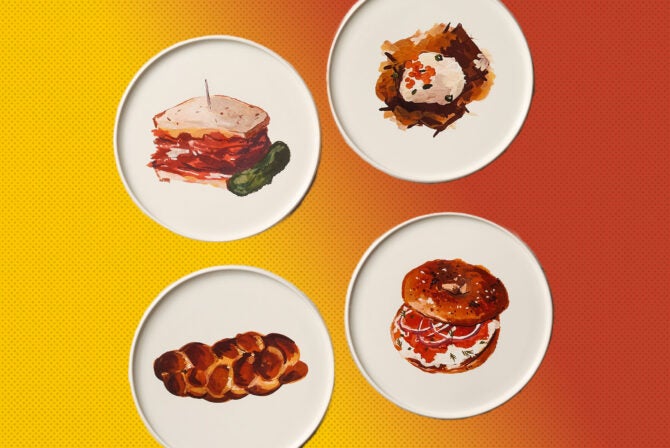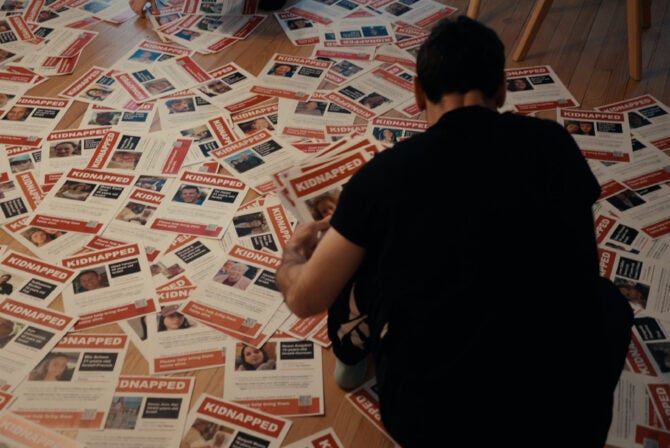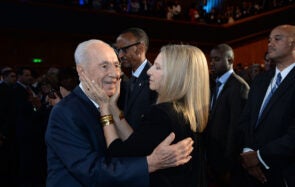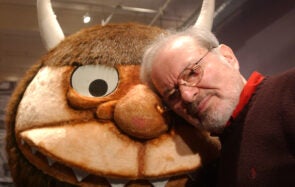Déjà vu. We’ve been here before, sitting in this waiting room, noting the same stale wallpaper. And yet, what happened here had a transformational effect on our lives. We left this room forever changed, becoming parents for the first time. And now, for a second.
Let me back up. It’s Friday and we’re expecting about 20 guests for dinner. Friends have noted that statistically, if you’ve given birth prematurely once before (as we had with Ravi), chances are higher that you’ll give birth early again. Well, not so much this time around. Yael is 39 weeks, a petite woman with an overwhelmingly large watermelon stomach bursting forth. For Purim, she wore an “eviction” notice on her belly. Purim has passed, though, and Passover is on the horizon.
I’m at home cooking while Yael plays the waiting game at a routine Friday check-up, only a few days before our anticipated due date. A few hours later, Yael is finally seen and hooked up to machines tracking her contractions and the baby’s heart beat. The team decides to move ahead with a C-section, and I cancel dinner.
Before I leave for the hospital, though, I sit down with our 3.5-year-old.
“Ravi,” I say, “Remember how we don’t know if you’ll have a brother or a sister, that it’ll be a surprise?”
A nod.
“And remember how we said we don’t know when the baby will come, that it will be a surprise, too?”
Another nod.
“Well, it seems that surprise is happening now.”
A nod. A smile. She understands, somehow. Without too much of a fuss, she gives me an extra hug for mama as I grab our hospital bag and Ravi stays with my parents. It’s an eerie feeling knowing that I’m leaving home the last time it will be a home to three.
After a failed version procedure with some pain medication to lessen the pain, Yael has fully accepted the reality of another caesarian section. A few moments later we’re all situated in the operating room and we meet our son for the first time. Yael and I cradle him, with the doctors and nurses working on Yael, while we recite that traditional blessing parents bless their children with on a Friday night.
“May the Lord bless you and keep you. May He shine His face upon you and grace you. May He lift His presence unto you and grant you peace.”
“Gut Shabbos,” our doctor says to us.
We smile. “Shabbat Shalom,” Yael and I reply. Shabbat—and our son—have arrived.
Later that Friday night we have the large recovery room with multiple beds to ourselves. And it is quiet. When Yael and I got engaged, we chose not to tell family and friends immediately. Instead we went apple picking and enjoyed the respite from our phones for just a few moments longer. With it being Shabbat, we choose not to use our phones and now have a similar grace period upon us, where we are compelled to stay present with each other and our little one.
*
Saturday, I bring Ravi to the hospital and we enter the room where Yael and baby boy are waiting. They meet. Shy and quiet, as Ravi can often be at first, she slowly opens up to him, as she also can do, kissing his feet, touching his cheeks, rubbing his hair.
“My baby,” she says.
In the lounge area, we meet an Indian family who asks us if there is anything symbolic about the baby being born on the Sabbath. I explain that it also happens to be the new Hebrew month of Nissan.
“It is also the first month of Chaitra,” a family member says, and we soon learn that Chaitra is the first month in the Hindu calendar.
The table here is set for Shabbat lunch, equipped with goodies from home as well as the Satmar Welcome Room. Every week, Satmar Hasidim fill up Jewish hospitality/welcome rooms in hospitals around New York City with free hot kosher food, fridges stashed with drinks, vegetables, and other snacks.
“Sorry for taking over the table,” I say. “Would you like to join us?”
Soon our Indian guests join in as we sing.
Suddenly, a 3-year-old boy comes running in with his father trailing behind him.
“Not so fast!” the father calls.
“Is this the new big brother?” I say, having met the father earlier.
“It is. Is this the new big sister?” the dad says back, gesturing to Ravi.
The two older siblings glance at each other, a glance that seemed to last an eternity. As adults experiencing the universality of childbirth, and the diversity of a New York City hospital, I have to imagine there was something shared in that moment between Ravi and this new big brother, even as toddlers. It’s the same look we parents with toddlers give other parents with toddlers whose children are having meltdowns in public areas, as if to say, we’re in this together.
*
Eight days later, we named our son in synagogue surrounded by family, friends, and song. Our son, Hillel Yosl Ziskind, is named after his three great-grandfathers; the Sandek, the person who holds the baby during the ceremony, is his only living great-grandfather. Noting the intersection between the generations was palpable as I looked around the room, knowing many of the family here had been at Ravi’s naming, at our wedding, even my own bar mitzvah, and for some, my own bris. That’s the power of ritual, in a way, connecting us to our past life cycle events, propelling us with hope into the future, imagining.
At the end of the day, Ravi started to have a meltdown. We headed outside to grab a breath of fresh air.
“Today was a long day, Tati,” she says to me. It’s true; Ravi has never had that much candy before 9 a.m. in her life.
“It was,” I reply.
“It was a lot,” she goes on.
“It was. Ravi, do you want to learn a new word?”
Another nod.
“Overwhelming,” I say. “Today was an overwhelming day; it means it was a lot to take in.”
“Yeah,” she says, starting to calm down, “I was overwhelming today.” And we head back inside with her smiling, only to have another breakdown before dinner.
After putting Ravi to bed, I say to Yael, “It’s amazing. We get to do this all over again now.”
“Um, yeah, Av,” she reminded me, “that’s sort of what parenting is all about.”
I guess that’s true. At the same time, having a 3-year-old already means there needs to be a certain type of order already in place—for Ravi, and for ourselves. In this way, Ravi taught us how to be parents, still teaching us. And now for a second time. Here’s to learning the same old lessons over and over again. Hillel Yosl Ziskind, welcome to the world.
Read More:
9 Tips to Get Your Kids to Eat Like Humans
I’m Jewish Because of All the Generations Before Me
The Trip to Costco That Made Me Cry








